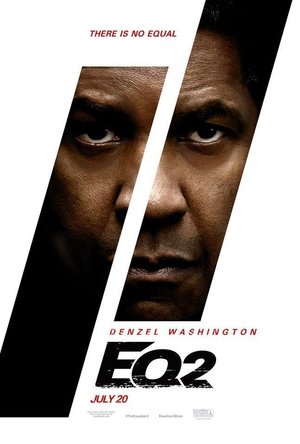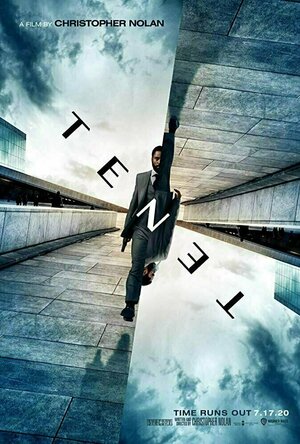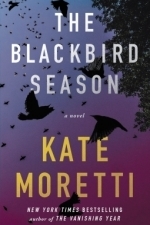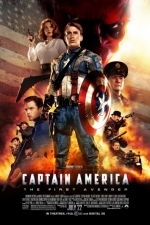
Masha and the Bear see & play
Entertainment and Games
App
In one app you get the Masha and the Bear series, as well as its two popular spin-offs, “Masha’s...

Channels ‒ Live TV
Entertainment
App
Live TV, anywhere in your home. Channels lets you watch, pause, and rewind local or cable TV...

The ABC Song Educational Game
Education and Games
App
~~~ 9 amazing spelling activities and games inside + interactive ABC song ~~~ ~~~ More than...

The ABC Song: Full Version
Education and Games
App
~~~ 9 amazing spelling activities and games inside + interactive ABC song ~~~ ~~~ More than...
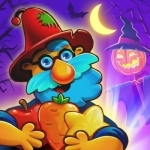
Farm Charm
Games and Entertainment
App
Farm Charm is a charming accumulative match-3 puzzler with lots of fascinating levels! Discover...
Bob Mann (459 KP) rated The Equalizer 2 (2018) in Movies
Sep 28, 2021
Washington returns here as the righter of wrongs, now working as a Lyft driver in Boston (clearly Uber either lost the bidding war or they were not considered to be as cool a brand anymore). Through his job he crosses paths with various troubled souls and is often able to help: sometimes with just an encouraging word; sometimes with more physical activity! By way of validating his good guy credentials, he also takes under his wing Miles (Ashton Sanders) – a local black kid at risk of being dragged into the Boston gang scene.
But this is all window-dressing for the main plot, involving bad guys (for reasons that escaped me) tidying up a lot of CIA loose ends in Brussels in a very brutal way. In charge of the investigation is Robert’s ex-boss Susan Plummer (Melissa Leo) and to help out further Robert has to ‘reappear’ to his ex-partner Dave York (Pedro Pascal). As in the first film, events lead to an explosive western-style showdown.
Directed again by Antoine Fuqua, the film oozes style from the impressive opening shots of a Turkish train, where the cinematography by Bourne-regular Oliver Wood is exceptional. The action scenes are well-executed, and includes a superb science experiment that will puzzle any viewer who thinks “hang on a minute – flour doesn’t burn”!
Reading again my review of the original film, I went off on a rant about extreme screen violence in sub-18 certificate films. There is certainly – as the British film censors (the BBFC) describe it – “strong violence” in this film, with some pretty brutal murder scenes. If anything though I thought the violence was a little less gratuitous this time around, which I welcome.
Denzel is the greatest asset of this film though. He acts up a hurricane (literally), and without his calm and powerful presence at the heart of the film, this would just be A.N.Other generic thriller. It’s also great that this time around the excellent Melissa Leo gets more screen time, as does her husband played by Bill “Independence Day” Pullman. (Is it just me that gets Mr Pullman confused with the late Mr Paxton? I spent all of this film thinking “Oh how sad” though all his scenes before I realised I was grieving for the wrong guy!). In terms of mistaken identity, this film has another in that a key villain Resnik looks far too much like Mark Wahlberg, but is actually Canadian actor Jonathan Scarfe.
Where the film stumbled for me was in having too many parallel “good deed” sub-plots. One in particular – you’ll know the one – feels completely superfluous, beggars belief and could have been excised completely for the DVD deleted scenes.
Do you need to have seen the first film? No, not really. There is exposition about McCall’s back-story, but if this was covered in the first film then I had completely forgotten it. It certainly didn’t detract from this as a stand-alone film.
A cut-above the norm, Washington’s solid performance makes this an entertaining night out at the flicks.
Kirk Bage (1775 KP) rated Tenet (2020) in Movies
Jan 22, 2021
For many it will have been the film that brought them out of lockdown number one into a world of slight hope that normality was returning. As it co-incided with my daughter’s birthday it became part of a treat day out that although socially distanced was my first attempt to do all the things I hadn’t done for a while; eat out in a restaurant, have a pint in a bar, and then see a movie. The experience, whilst still enjoyable and memorable, was tainted by how surreal and empty the world felt – the meal was in an half empty and cold Hard Rock Cafe, with no music and a smell of disinfectant; the pint was in a pop up outside bar that only took orders via a phone app in advance; and the movie was attended by six people, of which we were two, separated by not two metres but at least ten!
I have been in some screenings that were dead quiet before, but not for a film so anticipated and more or less mainstream. It was odd. Hats off to the staff of Everyman, Glasgow, however, who were exemplary in their courtesy, welcoming and safety precautions. It wasn’t their fault it was empty, and I applaud them for keeping the ball rolling at that time around the start of September. At least the sofas were comfy, the place was warm and the smell was still of popcorn and not domestos.
I had been looking forward to the film immensely. The hype and build-up to it had come with a lot of baggage, with rumours of production delays and script issues going back a few years. It was shrouded in mystery, with even the trailer being delayed until the very last moment and critics not getting to see it until a day before release, such was the fear of spoilers leaking out. My first concern, being so excited by the prospect of another time bending classic to join Memento, Interstellar and Inception in the ranks of “OK, what just happened” masterpieces, was that the sound during the trailers was very very low – if they kept it that low during the actual film I would demand my money back… I needn’t have worried…
Never in my life have I felt as if my eardrums were about to burst whilst watching a film! Literally, at times, Hans Zimmer’s powerful and emotive score was vibrating my testicles! Add to that the fact that a lot of the dialogue seemed mumbled and drowned out by it, and it made the first 45 minutes very difficult to enjoy. Was this horrendous sound mix a mistake? Or very much part of the plan to overwhelm the senses and confuse the brain? Was it part of the puzzle or a massive technical oversight? As almost everyone seems to have the same complaint about it, the jury is still out on that one…
And so, it took a little while for me to atune to the tone, regardless of how hard you had to focus to take in anything of what was going on. There was a point where I became certain I wasn’t going to like it – I braced myself for disappointment. And then… at a certain moment in a certain scene the penny dropped and so did my jaw, as the full realisation of where this was going, and how unique and mind blowing that concept was, finally kicked in. From that moment on it just got better and better, as the technical achievement required, let alone intelligence, to pull this off surpassed all previous levels of anything I can ever remember.
The “Wow” moments just kept on coming as the action, tension and intrigue kept rising to fever pitch. In the end, so profoundly bewildering were the potential possibilities of the plot and premise that I gave up trying to meet it intellectually and just allowed it to wash over me emotionally, knowing that repeat viewings would allow me to engage with it in that way later.
John David Washington as “the protagonist” is suitably neutral and unshowy in the role; threatening to be compared to Bond or Bourne, but never quite being either, as this world, despite it’s surface glamour and underground seediness feels much closer to DiCaprio’s suit wearing mind spy in Inception than either of those. For anyone who didn’t yet catch his terrific turn in BlacKkKlansman this may be their first encounter with him, and you’d have to say he has a very solid, dependable quality, without ever being starry or attention seeking. Watchable, for sure, but never chewing the scenery at the cost of the story – and surely that is why Nolan chose him.
Beside Washington is another excellent performance by the increasingly impressive Robert Pattinson. His role as the enigmatic Neil here grows on you minute to minute during the film, and afterwards you wonder if he wasn’t the best thing about the entire production… there is a subtlety of meaning in all his scenes that is only revealed late on, and demands a further watch or two to get every nuance from. He gives the impression he is entirely in control of the full meaning of the film and his own performance, so much so he strikes me as the pivot that would tip you either way on whether you liked the film or not.
And I have to admit not liking it is a valid option. You couldn’t possibly watch it whilst tired or in a bad mood, it is just too full on, bordering on oppressive at times. There are also a few supporting roles that I’m not 100% certain of, most notably Kenneth Brannagh as the seeming villain of the piece, Sator. His accent is a distraction, and it feels like a character you’ve seen him play before – fine in most ways, but nothing special – and I found myself wishing they had cast someone else in that role. Likewise with the less exposed Elizabeth Debicki – adequate, but not transcendent, as her character might have been with a more charismatic actress.
My overall impression was definitely affected by how much my daughter enjoyed it – she loves having a mystery to solve, especially if it involves time or some other sci-fi concept. The pleasure of it was chatting it over excitedly afterwards, to see if either of us had truly understood the full story, in the same way I remember doing with others about all Nolan’s concept pieces over the years. If you come to it being less than bothered about having to unlock a puzzle box then it may very well piss you off, to the extent you either just give up or sit back and enjoy the ride. However, I would assert confidently that it is worth the effort and will reward multiple viewings over time. Especially as more clues to its meaning are discussed and revealed.
One thing that can be said with certainty is that there is no other film like this that has ever been made. It feels different and beyond comparison in many crucial ways. The ambition of Nolan has to be applauded. I only wish he would go back and sort out that sound design before I get around to seeing it again.
Kristy H (1252 KP) rated The Blackbird Season in Books
Dec 24, 2017
Wow, I was really impressed by this novel. It's a complicated novel that is just as much a character-driven study as it is a mystery. It's incredibly well-written, and Moretti expertly embodies the voice of each of her characters, from beleaguered Alecia, who is worn down from mothering her autistic son, Gabe; to the cast of teenager characters; to Bridget, who lost her husband to cancer a year ago. It's so well-done that often with each chapter (which skip from various points of view -- Bridget, Kate, Lucia, Nate, etc.), I found my myself veering between whom I preferred or believed, constantly second-guessing my allegiances or what happened. This is very rare for me: typically I find my "person" in a novel and stick with them, no matter what.
But here, I was confused, wondering. Was Nate really a cad, who cheated on his wife every second he got, or was he the sweet, affable teacher and baseball coach that the whole town admired and adored? And Alecia--was she more than just a weary mom, broken down by years of staying at home with her autistic son, Gabe, unable to give to anyone beyond him? Did she push Nate away, into the arms of others? Or was the truth more complicated that all of this? I have to hand it to Moretti--she was excellent at creating confusion and doubt. In addition to different perspectives, the novel shifts in time (before the birds fell, after the birds fell, before Lucia disappeared, etc.). It's a little tough to keep track of, but it also keeps you on your toes and always wondering, as you piece various parts of the puzzle together.
For me--even more than the mystery of what exactly happened with Lucia--the strength of this novel was the writing and the characters. I felt for them, even when I was frustrated with them. Moretti captures the angst and meanness of high school extremely well, portraying the cliques of a small town quite superbly. (I was reminded of WHEN WE WERE WORTHY, which I just finished.) I loved the juxtaposition of this being a small town, so the idea is that everyone knows everyone and everything, and yet there are so many secrets, so much unknown. Being a witness to Alecia and Nate's marriage is amazing-- you see firsthand how the events affect them and how they've reached this point. It's an incredibly realistic portrayal of marriage and of motherhood.
As you probably tell, I just really liked this novel. It's very well-written, with quite compelling characters. I worked out some of the plot, but it didn't stop me from reading at all. I think some of the emphasis on character development slows the story at places, but not in any detrimental way. This one will make you think, as well as intrigue you with what happened to Lucia. Quite worth the read.
Haley Mathiot (9 KP) rated Once Dead, Twice Shy (Madison Avery, #1) in Books
Apr 27, 2018
But the dark timekeeper who killed her isn't happy, because she's got his amulet, and she's not all the way dead (just sort of dead). Teaming up with Barnabas—who may or may not be a fallen angel—and the light time keeper, Chronos (or Ron for short), a guardian angel (who she forces to guard someone else) and enlisting the human help of her ex-prom date Josh (who she didn't realize she had a crush on), she has to attempt to save her soul.
All in a day's work for a dead high-schooler… right?
This was the second time I've read Once Dead, Twice Shy. I still can't figure out what the title means. Whatever it means, it was a pretty exciting book. There wasn't a second of "down-time." Madison was always up to something, learning something, running to—or from—something, or saving someone. Every chapter had little pieces of the puzzle, and the way it all fit together at the end, was priceless, hilarious, and promising.
I will say that I don't like where the story picks up. I think Harrison should have actually included the beginning of the story, where she gets killed. I read it before I read this book and I would have been rather lost without it. It was a short story included in Prom Nights from Hell. I don't care if this is technically a "book 1" in the series. It should have been book 2, or at least had the beginning of the story included in it.
I really liked Madison. I liked her character (though not some of her choices—but hey, if I was a dead seventeen year old trying to keep her dad from knowing that she could bend time, I probably would have made those same choices) and I liked her interior monologue. She was serious enough to be nerve-wracking and exciting, but sarcastic enough to give everything a touch of comic relief. I really didn't like Josh in the short prequel to this book, but as his character began to be more clear, I really started to like him. I hope things turn out well between him and Madison. I would have liked a little more romantic tension between them, but what was there was clean and innocent—a little too innocent for Madison Avery.
I don't particularly like Kim Harrison's writing style. It's very casual, it has those dreaded fragments, and it's nothing out of the ordinary. However, her way of describing both physical images and emotional feelings was very good, and I could see everything, hear everything, and feel everything her characters were experiencing. As I mentioned above, I liked the comic relief. I also liked her lack of language through the story. Madison had her own set of "words" and phrases that she used that weren't offensive in any way, and it made the story much more enjoyable. However, the only word I can think of to describe her writing is mediocre, and that and the lack of tension between Madison and Josh are the only reasons I don't give this book five stars.
Content: clean of language, violence, and sexuality of any kind. Thank you Harrison, for writing clean YA fiction!
Recommendation: Ages 12+ to lovers of sci-fi, fantasy, and general YA fiction.
This review is copyright Haley Mathiot and Night Owl Reviews.
Ryan Hill (152 KP) rated Captain America: The First Avenger (2011) in Movies
May 9, 2019
A rip-roaring homage to old fashioned serials and comic books. Joe Johnston somehow pulls off the tone and look, firmly planting me into the 1940's time period. As fantastical as it is I still feel the real world within the picture.
Protagonist Steve Rogers makes for an easily likable guy who at the start is a smaller guy, who stands up to bullies even if it means getting his ass beat. His dream is to serve his country and although not meeting physical requirements for the army, he proves the heart and courage to become the specimen of a super soldier syrum. With this experiment, Steve's size, strength and conditioning is greatly enhanced and becomes the face of WW2 propaganda. His desire to fight however gets him involved with the battle against a division of the Nazi's known as Hydra, headed by Johann Schmidt, the "Red Skull".
Red Skull is one of the best villians of the Marvel cinematic universe. I couldn't imagine him played by anyone other than Hugo Weaving who brings such gravitas and personality to the role. Red Skull is an experiment of the soldier syrum himself which gives him a certain connection to Rogers, but chooses to use his power for the service of himself and his evil desires. The film includes the element of Nazi fascination with science and experimentation, taking it a step further. Red Skull discovers other worldly magic, the Tesseract of Asgard, which he utilizes for the use of weaponry. Thus, blending historical events with an exciting dose of imagination. A Nazi more powerful than Hitler? That's pretty scary.
The action comes swift and mighty, combining the fleshy violence of war with creative comic book thrills. It's some of the most entertaining action I've ever seen. I love that the presence of Hitler can be felt even though he is not on screen. It seamlessly connects the future with the past, makes the looming threat of the entire world felt, and contains elements of other Marvel films past and present that only adds to the movie and never detracts. Tony Stark's father has a direct influence on Captain America which adds a layer to the proceeding films. Thor and Loki's place in future events are tied in perfectly. Steve's friendship with Bucky and presumed death is one of the emotional cores to the film that also plays into the sequels. Unbelievable.
Can I just mention the charming romance between Peggy and Steve Rogers? It's so natural and plays out over the duration of the film without anything ridiculous. When Peggy tears up as Steve is speeding toward the unkown in a downed plane, I lose it. I lose it every time. They never got that last dance and my heart is broken.
When Red Skull calls Steve a "simpleton with a shield" I'm like YES!! that's why I love him. I could be Steve Rogers. I could be Captain America. Well, not really, but he's one of the most relatable on screen super heroes. I'd even say he's the one I can see myself in the most. Consider me #TeamCap.
I must make mention of the wonderful musical score and songs written for the film. Very important piece to the puzzle. I listen to "Star Spangled Man" just about every time I take a walk. The costumes and production design deserve all the love in the world as well. Tommy Lee Jones is great and makes me laugh as usual. All performances are great. Points for finding a use for Captain America's vintage comic book costume and re-enacting the punch to Hitler's face from Captain America issue #1.
Who taught Cap how to fight like that though? Guess that's one of the perks of the syrum too.
